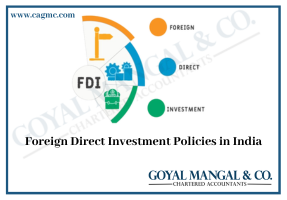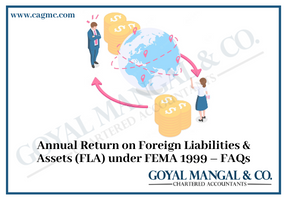
Welcome to this fascinating exploration of the world of growth and quality of Foreign Direct Investment (FDI). This journey addresses the question, “Is all FDI equal?” FDI has become an integral part of today’s global economy, and countries are eager to attract foreign investment. However, not all FDI is created equal. Some provide significant benefits that boost economic growth and improve quality of life, while others fall short.
In this article we are going to study about the growth and quality of FDI – Are all FDI equal?
Overview
To overcome the savings and investment gap, many countries have adopted the approach of foreign direct investment, which limits the level of domestic investment and encourages investment from abroad. The entry of foreign investment into the country and making a difference in managerial, technical, and entrepreneurial skills helps to fill these gaps. It serves as a valuable source of technology and facilitates connections with local businesses and enterprises to revitalise the economy.
Definition of Foreign Direct Investment
Foreign Direct Investment is an investment made by a company in one country for the benefit of a business located in another country. Foreign direct investment usually occurs when an investor conducts business operations for another foreign company or purchases international business assets.
What are the advantages of FDI in India?
FDI has important benefits, from national economic growth to youth employment. Some of them are as follows:
- Promote investment in key areas – Allowing FDI into a country encourages investment in key areas such as infrastructure development.
- Increase capital flow – FDI facilitates the entry of capital into the country and accelerates the economic growth of the country.
- Increase in exports – The export of many less developed and developing countries has increased by 100% with the help of foreign direct investment through the creation of economic zones and the promotion of export-oriented units.
- Career Opportunities – The emergence of foreign direct investment in developing countries has significantly increased domestic employment opportunities.
- Promotion of financial services – Foreign direct investment in a country has strengthened the country’s capital market through activities such as commercial banking and portfolio investment.
- Exchange rate stability – The Central Bank of India continuously strives to maintain the exchange rate of our country through exchange control measures. With increased FDI inflows into the country, RBI now has very satisfactory foreign exchange reserves.
FDI and economic growth
Foreign direct investment (FDI) can have a significant impact on economic growth. Foreign direct investment refers to an investment made by a company or individual from one country to another, usually involving the establishment of business operations or the acquisition of assets in a foreign country.
However, it is important to note that the impact of FDI on growth and economy may vary depending on various factors, such as the host country’s economic conditions, political environment, institutional framework, and quality of governance. Governments often implement policies to attract and maximize the benefits of foreign direct investment while mitigating potential risks such as overreliance on foreign capital or the exploitation of local resources.
Are all FDI equal in terms of growth and quality?
No, not all FDI is created equal in terms of growth and quality. FDI refers to the investment of a foreign company in the economy of another country. Foreign direct investment brings many benefits such as job creation, technology transfer and increased capital flow, but its impact depends on several factors.
- Sectorial differences: The quality and growth of FDI can vary across sectors. Investments in high-tech industries, research and development, and innovation-driven sectors are generally more likely to generate economic growth and long-term returns. On the one hand, investment in low-value-added sectors has limited potential to boost economic growth and may be mainly focused on intensive activities.
- Sources of FDI: Sources of FDI play a role in determining its quality and growth potential. Investments from advanced and economically developed countries are often associated with advanced technology, management expertise and best practises that can contribute to the growth and development of the host country. FDI from emerging countries can provide various benefits such as access to new markets and natural resources.
- Investment Objectives: The objectives behind FDI can affect its impact. Some investments are aimed at creating production facilities for export-oriented activities and helping foreign exchange earnings and improving the trade balance. Other investments may focus on serving the domestic market, creating job opportunities and stimulating local economic activity.
- Linkage and spill overs effects: The degree of creating chains and spill overs of foreign direct investment in the domestic economy affects its quality. FDI that integrates with local suppliers, facilitates technology transfer, and fosters knowledge spill overs can have more significant positive effects on host countries’ economic development and productivity. In contrast, FDI that operates independently or relies on imported inputs may have limited local value creation.
- Policy environment: The policy framework and business environment of the host country can have a significant impact on the growth and quality of foreign direct investment. Countries with a favourable investment climate, clear regulatory frameworks, protection of intellectual property rights, and political stability tend to attract higher growth and quality of FDI.
What are the routes of inflow of FDI in India?
There are two main routes through which India receives FDI.

Why is India an attractive destination for FDI and economic development?
Some of the reasons are as follows:
- Foreign direct investment around the world has developed significantly. This has enabled the development of domestic infrastructure to provide better living standards.
- Considering the role of multinational companies, this corresponds to an increase in FDI, which indicates an increase in the share of foreign capital in these economies.
- Over time, India established itself as one of the leading economies in the world. Additionally, India is considered to be the second fastest growing economy in the world, making it a very lucrative and attractive market for FDI.
- India’s FDI stock rose from less than $2 billion in 1991 to over $45 billion in 2005 as a result of sweeping economic reforms. Two main factors are believed to have contributed to the increase in FDI inflows into India.
- First are structural reasons such as infrastructure quality, geographic and market size, and cultural alignment with key financial resources.
- Second are policy factors such as investment incentives, tax rates, and performance requirements.
What are the sectors under which FDI is strictly prohibited?
There are some sectors under which FDI is strictly prohibited:
- Atomic energy production
- Any gambling or betting businesses
- Lotteries (online, private, state, etc.)
- Investment in Chit Funds
- Nidhi Company
- Agricultural or plantation activities (although there are many exceptions, such as horticulture, fishing, tea plantations, fisheries, animal husbandry, etc.)
- Housing and real estate (except townships, commercial projects, etc.)
- Trading with TDR
- Cigars, cigarettes or any related tobacco industry
Conclusion
The quality of FDI is associated with significant positive and economic effects on growth that cannot be ignored. The relationship between growth and quality of FDI is stronger in industries with higher skill requirements and higher reliance on foreign capital. Understanding the impact of FDI on economic growth is very important because you need to know where you want to invest.





